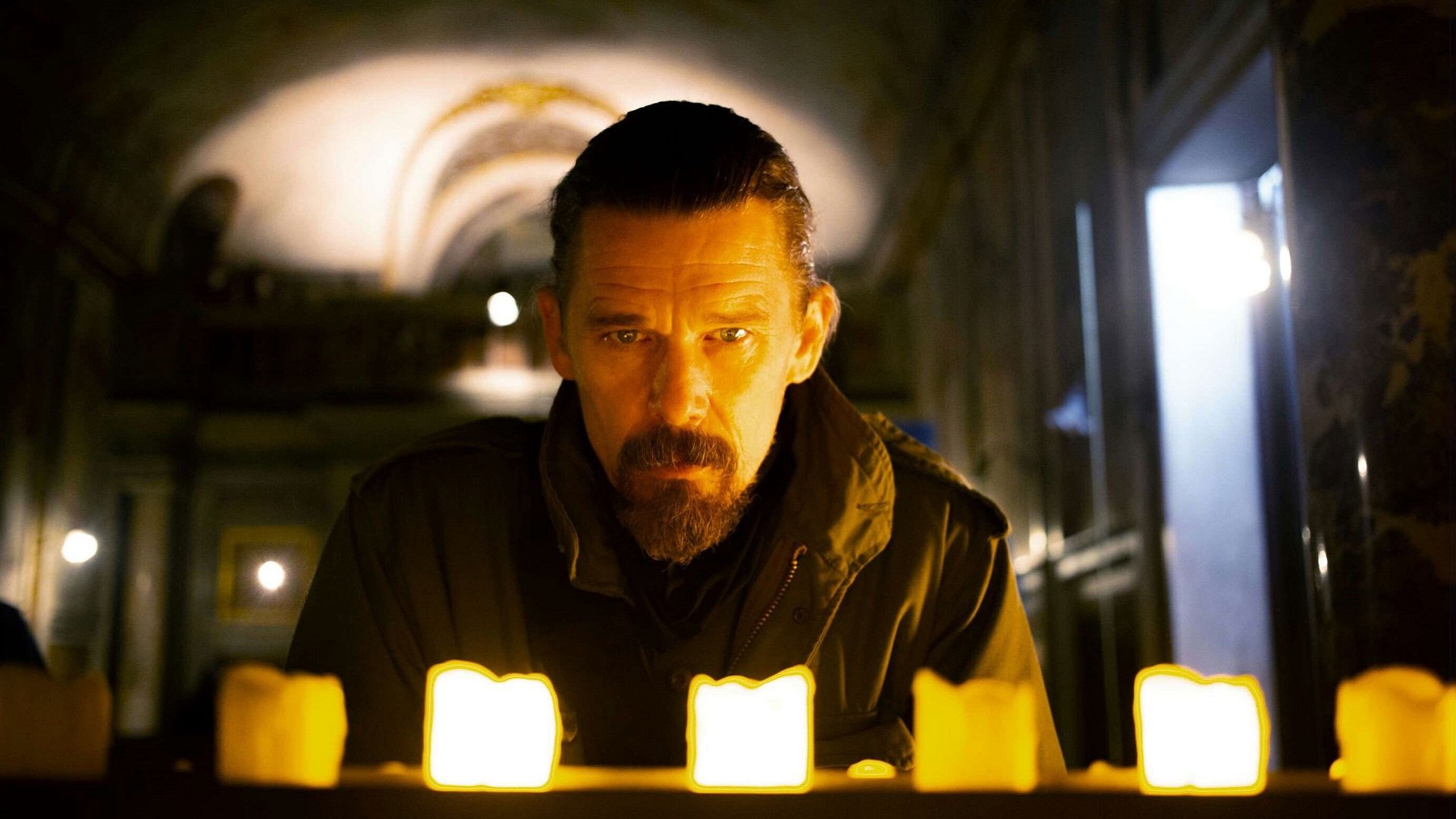Zeros and Ones
LionsgateAbel Ferrara has always been a cinematic rebel. Often talked about as the darker, sleezier version of Martin Scorsese, the New York filmmaker made a career around controversial, boundary-pushing crime films with heavy socio-political content, critiquing especially American jingoism and the societal corruption of capitalism. In the mid-2000s, he left his hometown and moved back to Italy, improving his health, cleaning up his act, and directing a slew of personal – sometimes borderline autobiographical – films shot in Rome and other European countries.
More so than other filmmakers that started out in the ‘70s, Ferrara loves digital cameras: they make productions cheaper, quicker, and they give him the freedom to fully experiment in the editing room with narrative, sounds and visuals alike. His latest film, Zeros and Ones, is the perfect embodiment of that: a digital nightmare filmed during the 2020 pandemic in Rome, arguably the most topical and timely film he has ever been able to make.
Zeroes and Ones plays almost like a spiritual sequel to his 1998 adaptation of William Gibson’s New Rose Hotel: set in a near future where a worldwide pandemic has slowed down travelling and governments have enforced a police state that holds every citizen in a stranglehold. Cameras are everywhere here, an Orwellian dystopia that feels so much more grounded because of the noise-heavy and shaky cinematography by Sean Price Williams.
Calling the narrative opaque would be an understatement. Ethan Hawke himself opens and closes the film with fourth-wall-breaking messages in which he addresses the audience, admitting that he does not know what the film is really about nor what Ferrara was trying to say, but that it is ultimately the best representation of the COVID-19 chaos. Zeroes and Ones thrusts viewers into a world that has already collapsed, where anarchy reigns and terrorists and police forces are one and the same.
Ethan Hawke plays a soldier only known as JJ, called to Rome to protect the ultimate symbol of religious power: the Vatican. His twin brother is the only one who might help with discovering when and where the terrorists will strike, but he is imprisoned, hidden away in a dark room. This is the driving force of the narrative, but Ferrara is less interested in delivering a conventional thriller and more in examining the state of paranoia that has poisoned everyone over the past year.
The film is nauseating, with aggressive lighting, a pulsating Joe Delia score, and erratic editing by Leonardo Daniel Bianchi. It is a style that is most definitely not for everyone, and those that hated any of the director’s output in the 2010s are not going to be converted by Zeros and Ones. It is most definitely an experience that is unlike any other pandemic-set production: the obsession of recording everything that happens, with every character filming their actions with handheld or action cameras attached to their bodies, hits close to reality and the ever-increasing lack of privacy in the name of safety.
While Zeros and Ones is haunting and disorienting, with the barrage of characters being introduced and swiftly killed off alongside Hawke’s sporadic, bleak narration, it also ends up being one of Ferrara’s most hopeful films. Everything might be filtered through a lens, but it is possible to escape the nightmare and the darkness deep inside the soul. The final moments of the film are brimming with life and optimism, partly because of faith, partly because men themselves are capable of becoming good and finding harmony in the chaos.
Zeros and Ones truly is one of the year’s most peculiar films – baffling, confusing, risky, and unique in ways very few filmmakers would pull off so effortlessly. Ferrara is not slowing down, and his newfound love for life following his sobriety and marriage with actress Cristina Chiriac has brought on a new era of dark and experimental films where there is always light at the end of the tunnel. If his characters can find inner peace and redemption, then so can Ferrara.


